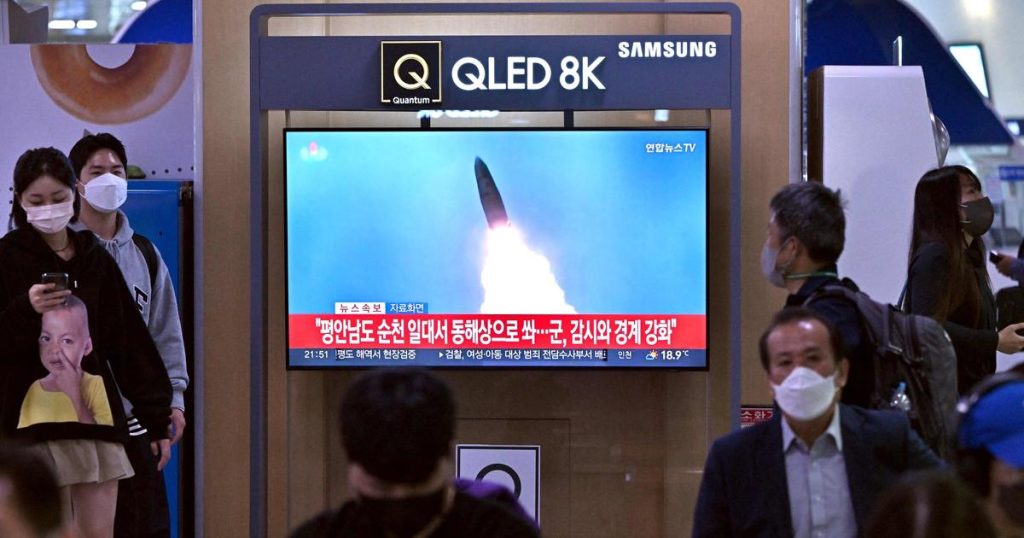
Japanese call for evacuation and shelter after North Korean missile launch
Pyongyang launched an unidentified ballistic missile on Tuesday that flew over the Japanese archipelago before hitting the Pacific Ocean.
The Japanese government said a North Korean missile flew over northeastern Japan on Tuesday, Oct. 4, before falling into the Pacific Ocean, and it did not report any casualties or damage. The projectile triggered a rare activation of the J-Alert system, which appeared on national radio NHK screens, calling on residents in the north and northeast of the archipelago to take shelter.
“At about 7:22 a.m. North Korea fired a ballistic missile eastward”Government spokesman Hirokazu Matsuno told reporters. “We are analyzing the details, but the missile passed over the Japanese region of Tohoku (northeast) and then landed in the Pacific Ocean outside Japan’s exclusive economic zone.”. He said there were no reports of damage or injuries from the shooting, which Prime Minister Fumio Kishida described“violent action”. “We strongly condemn this act”he added.
The country’s missile warning system was activated at 7:29 am (2229 GMT Monday). It looks like North Korea fired a missile. Please evacuate to buildings or underground.”, read the alert. About 30 minutes later, the Prime Minister’s Office then tweeted thatA missile that appears to be a North Korean ballistic missile may have flown over Japan.. The Japan Coast Guard said in a statement that the missile apparently fell into the sea and urged ships not to approach the fallen objects.
Pyongyang, which has nuclear weapons, has embarked on an intense campaign of weapons testing this year, which culminated last week with the firing of four short-range ballistic missiles.
Negotiations reached a dead end
Seoul, Tokyo and Washington on September 30 held a trilateral anti-submarine exercise for the first time in five years, days after the US and South Korean navies conducted large-scale exercises off the peninsula. US Vice President Kamala Harris was in Seoul on September 29 and visited the Demilitarized Zone (DMZ) between the two Koreas, during a trip to highlight the commitment. “steadfast” Washington to defend South Korea against the North.
Pyongyang has stepped up banned weapons programs amid a long deadlock in talks, conducting a record number of weapons tests this year and reviewing its legislation to make “Irreversible” status as a nuclear power. North Korea, which is under UN sanctions for its weapons programs, generally seeks to maximize the geopolitical impact of its experiences by choosing the moment that seems most appropriate.

“Unapologetic pop culture trailblazer. Freelance troublemaker. Food guru. Alcohol fanatic. Gamer. Explorer. Thinker.”
